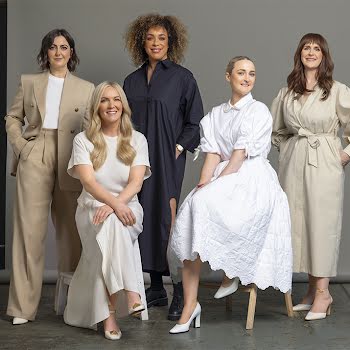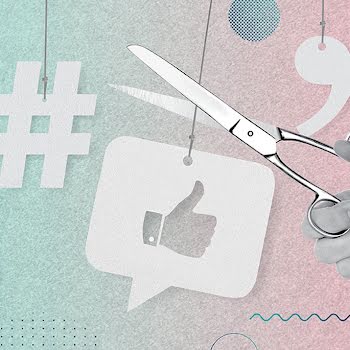
How many ways are you apologising? Tentative language undermines your credibility
By Colette Sexton
22nd Sep 2020
22nd Sep 2020
Colette Sexton feels like maybe, just maybe, this article could actually help you get your message across to other. Though she says she’s no expert…
I was “just” wondering if you could “maybe” read this article. “Sorry”, I know it will take up your time. You are already so busy and, of course, I am “no expert”, but “I feel like” it “actually” could help you out.
Does the above paragraph look familiar to you? Almost like something you could have written yourself? Then you need to consciously look at your use of language. Using qualifying words and phrases often means you are discrediting your own message while you are still in the process of delivering it.
Using words and phrases like “just”, “sorry”, “maybe” and “actually” as well as phrases like “I feel like”, “I’m no expert”, “I think”, sabotage your message. To the reader or your audience, it seems like you do not believe in what you are saying.
I’m sorry but…
Telling women that they are using language wrong goes against the core of my being.
Women are told they do everything wrong. We’re too loud, we’re too quiet, we’re too brash, we’re too shy, we’re too ambitious, we’re not ambitious enough.
I don’t want to add to that chorus of negatively but believe me, I’m trying to help out.
Women traditionally started to use these qualifying words to appear less aggressive, but really all this language achieves is making us look weak. It is certainly not a solution to the problem of women being taught that they should be seen and not heard.
If you want to change your language to remove these qualifying words – good news, there is an app for that. Or rather, there is a Gmail plug-in called “Just not sorry” which highlights words that undermine the email, including “just” and “sorry”.
Cyrus Innovation
It was developed by Tami Reiss at Cyrus Innovation after attending a female business brunch when fellow attendees discussed how they all share the same tenancies to use these qualifier words. In a post on Medium, Tami explained why it was important to stop using undermining words.
She said: “When someone uses one of these qualifiers, it minimizes others confidence in their ideas. Whether you’re persuading an investor to provide funding, announcing a change in direction to your colleagues, or promoting your services to a client, you are building their confidence in you.
“Qualifiers hint to the reader that you don’t have faith in what you’re saying. The last thing you need is to seem unsure of yourself. We want to make it easy to kick the habit by making it obvious when these qualifiers are holding us back.”
The Just Not Sorry plug-in now has over 35,000 users. I “feel like” they “actually” are “just” not one bit “sorry” for making their emails more assertive.
“Maybe” you should be Just Not Sorry now too.
Read more: In your 40s and worried about money? Read this
Read more: Money management in your retirement
Read more: The time has come for women to talk about money






















